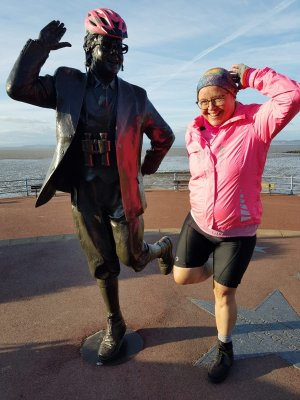... What exactly are the reasons for this though? Can't just be because you have "no reason" to get up in the morning. What physically is going on, apart from the effects of hard physical labour and illnesses from industry which some have had to endure?
There are two factors which I've observed to be in play and which I believe play the largest role in many (but not all) cases - depression and stress.
Don't underestimate the impact of an abrupt life shift in fostering depression, and don't underestimate the way depression's effects are magnified with advanced age. I've known lifelong workers to fall into a deep dark funk within months after full retirement. This can have all sorts of direct and indirect effects on health. In the most extreme cases I've seen folks essentially wither away. Depression is a reaction / response to one's perceived situation, which in turn points to the more probable causative factor ...
It's common to view retirement as an event that frees one from everyday stresses, but for folks who've invested their whole adult lives in doing the same thing retirement can be a huge and insurmountable stressor. This can result from a wide array of issues, such as:
- losing a longstanding sense of self-worth and identity which had developed around one's job / career
- loss of structure (e.g., routine) in one's everyday activities
- suddenly having to be immersed in spousal / family matters 24/7
- loss of the way(s) one measured one's personal worth (to oneself and / or to others)
- sudden loss of one's prior level of income / affluence
- loss of workplace social connections and networks that were more important than one realized
- the shock of seeing oneself as a 'retiree' / 'oldster' that had long been a category of 'them' (other people; not me)
- an inability to adapt to circumstances after not having to 'maneuver' for 40 or more years
- the burden of connections, obligations and / or entanglements that persist as sources of pressure
... and more.
There's one thing that strongly affects the intensity and impact of these factors - the less one has foreseen and made allowances for the last phase of life the greater the shock when the typically abrupt transition into that phase occurs. It's all too common to never consider and plan for retirement until you find yourself staring it in the face. Some folks are ill-prepared and ill-equipped to make that transition, and it devastates them.
If you've ever unexpectedly lost a job you may have had a small taste of what it's like. However, there's a big difference between scrambling to restart your working life (and associated income, etc.) in the next few weeks versus confronting the prospect of having no working life at all for the rest of your life. Transient unemployment is a situational challenge; retirement is seen as a permanent and final state of affairs. Consider this ... Transient unemployment is the figurative equivalent of a flesh wound / injury, whereas final retirement is akin to a total / permanent disability. Big difference ...



